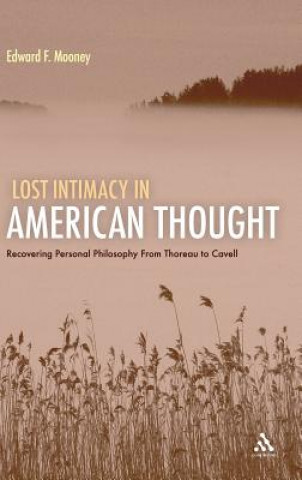
Kód: 01253435
Lost Intimacy in American Thought
Autor Edward F Mooney
This title offers a critique of rationalism in contemporary American thought by recovering a lost tradition of intimacy in the writings of Thoreau, Bugbee, James, Arendt, Dickinson, Fuller, Wilshire and Cavell. "The Loss of Intima ... celý popis
- Jazyk:
 Angličtina
Angličtina - Vazba: Pevná
- Počet stran: 192
Nakladatelství: Continuum Publishing Corporation, 2009
- Více informací o knize

Mohlo by se vám také líbit
Dárkový poukaz: Radost zaručena
- Darujte poukaz v libovolné hodnotě a my se postaráme o zbytek.
- Poukaz se vztahuje na celou naši nabídku.
- Elektronický poukaz vytisknete z e-mailu a můžete ihned darovat.
- Platnost poukazu je 12 měsíců od data vystavení.
Více informací o knize Lost Intimacy in American Thought
Nákupem získáte 625 bodů
 Anotace knihy
Anotace knihy
This title offers a critique of rationalism in contemporary American thought by recovering a lost tradition of intimacy in the writings of Thoreau, Bugbee, James, Arendt, Dickinson, Fuller, Wilshire and Cavell. "The Loss of Intimacy in American Thought" focuses on a number of American philosophers whose work overlaps the religious and the literary. Henry David Thoreau, Henry Bugbee, Hannah Arendt, Bruce Wilshire and Stanley Cavell are included, as well as Henry James, whose novels are treated as presenting an implicit moral philosophy. The chapters are linked by a concern for lost intimacy with the natural world and others. The early Marx would see this as the alienations in industrial societies of persons from nature, from the processes of work, from each other, and from themselves. Weber might call it the disenchantment of the world. In any case, it is a condition that forms a focus of concern for Thoreau, Bugbee, Arendt, Cavell and Wilshire as well as writers such Henry James, Dickinson and Margaret Fuller. These writers hold out a hope for closing the gaps that sustain alienations of multiple sorts and Mooney brings them into critical discourse with the secularised and constricted rationalism of contemporary analytic philosophy. The latter exalts 'objectivity' and encourages the approach that one should adopt a third person view on everything, dividing the world into rigid binary oppositions: self/other; mind/matter; human/animal; religious/secular; fact/value; rational/irrational; and, enlightened/indigenous. By contrast, each of the thinkers that Mooney discusses see writing as a way of saving the object of attention from neglect or misplaced appropriation, outright attack, or occlusion. His aim is to recognise the importance of non-argumentative forms of address in these American thinkers. The method he employs is analysis of particular texts and passages that exhibit a generous, often poetic or lyrical discernment of worth in the world. It is not meant to be an exhaustive treatment of any one thinker or theme, but a set of case studies, as it were, or a set of particular explorations, each self-sufficient yet resonating with its companion pieces. Mooney's objective is to spark interest in those who are ready to recover Thoreau and Emerson and Bugbee for the sort of American tradition that Cavell has sought to discover and rejuvenate; the tradition, as Mooney puts it, of 'American Intimates'.
 Parametry knihy
Parametry knihy
Zařazení knihy Knihy v angličtině Humanities Religion & beliefs Religion: general
6246 Kč
- Plný název: Lost Intimacy in American Thought
- Autor: Edward F Mooney
- Jazyk:
 Angličtina
Angličtina - Vazba: Pevná
- Počet stran: 192
- EAN: 9781441181664
- ISBN: 1441181660
- ID: 01253435
- Nakladatelství: Continuum Publishing Corporation
- Hmotnost: 486 g
- Rozměry: 239 × 162 × 18 mm
- Datum vydání: 23. December 2009
Oblíbené z jiného soudku
-
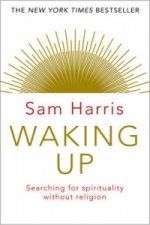
Waking Up
306 Kč -
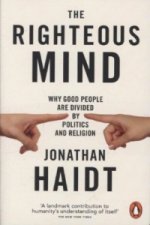
The Righteous Mind
357 Kč -
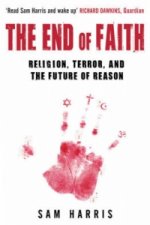
End of Faith
254 Kč -

Death
172 Kč -
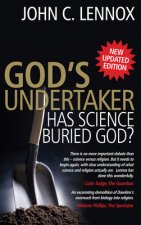
God's Undertaker
303 Kč -
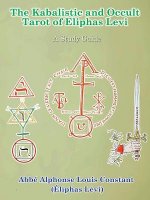
Kabalistic and Occult Tarot of Eliphas Levi
793 Kč -
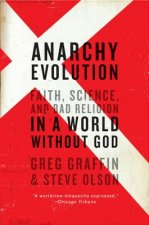
Anarchy Evolution
357 Kč -
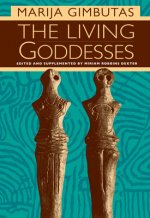
Living Goddesses
899 Kč -

Original Aramaic New Testament in Plain English with Psalms & Proverbs (8th Edition Without Notes)
844 Kč -

Scientific Healing Affirmations
173 Kč -
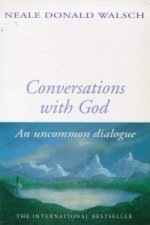
Conversations With God
234 Kč -
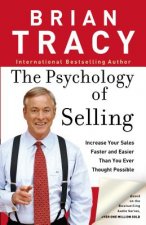
The Psychology of Selling
384 Kč -
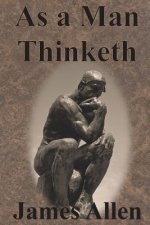
As a Man Thinketh
179 Kč -
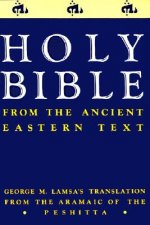
Holy Bible
909 Kč -
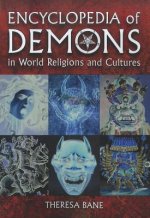
Encyclopedia of Demons in World Religions and Cultures
1472 Kč -

American Cosmic
514 Kč -

Bhagavad Gita
194 Kč -

Koran
515 Kč -

Secular Age
613 Kč -

Mabon
291 Kč -

Religion for Atheists
358 Kč -
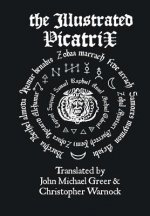
Illustrated Picatrix: the Complete Occult Classic of Astrological Magic
1486 Kč -
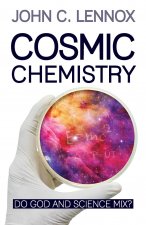
Cosmic Chemistry
410 Kč -

Princess Majestic Bible Tabs
166 Kč -
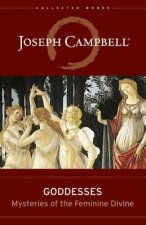
Goddesses
571 Kč -
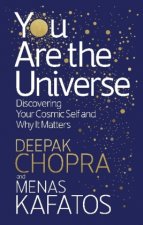
You Are the Universe
384 Kč -

Good Morning, Holy Spirit
410 Kč -
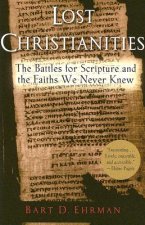
Lost Christianities
437 Kč -
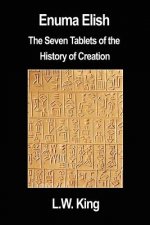
Enuma Elish
471 Kč -
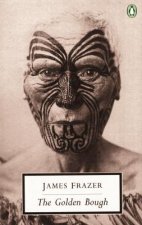
Golden Bough
472 Kč -

Mary Magdalene and the Divine Feminine
402 Kč -
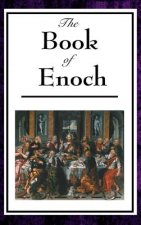
Book of Enoch
579 Kč -
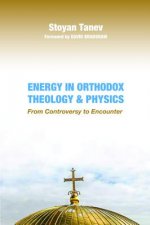
Energy in Orthodox Theology and Physics
1010 Kč -

History of God
357 Kč -

Religions Book
534 Kč -
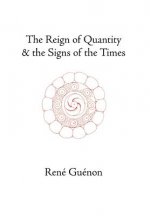
Reign of Quantity and the Signs of the Times
927 Kč -
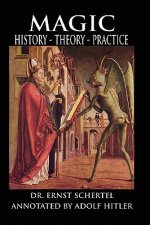
Magic: History, Theory, Practice
565 Kč -
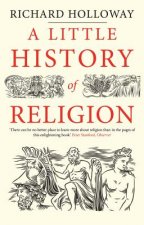
Little History of Religion
307 Kč -
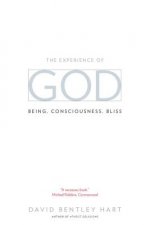
Experience of God
444 Kč -
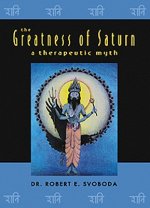
The Greatness of Saturn
306 Kč -
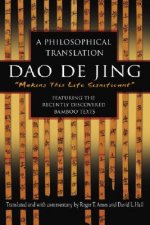
Dao De Jing
407 Kč -
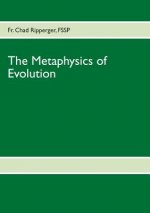
Metaphysics of Evolution
327 Kč -
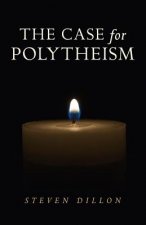
Case for Polytheism
291 Kč -

History of Israel, Fourth Edition
1260 Kč -
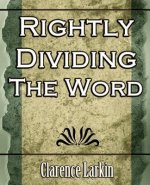
Rightly Dividing the Word (Religion)
870 Kč -

City of God
470 Kč -

Fallen Angels and the Origins of Evil
433 Kč -
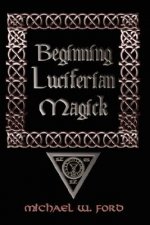
Beginning Luciferian Magick
501 Kč -
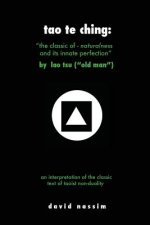
Tao Te Ching - by Lao Tsu
447 Kč
Osobní odběr Praha, Brno a 12903 dalších
Copyright ©2008-24 nejlevnejsi-knihy.cz Všechna práva vyhrazenaSoukromíCookies




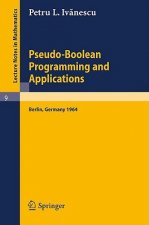

 Vrácení do měsíce
Vrácení do měsíce 571 999 099 (8-15.30h)
571 999 099 (8-15.30h)